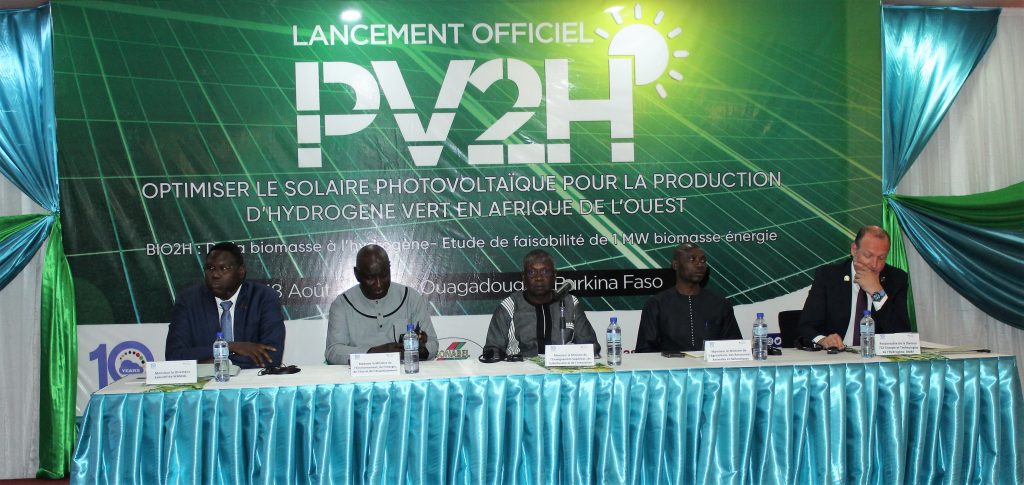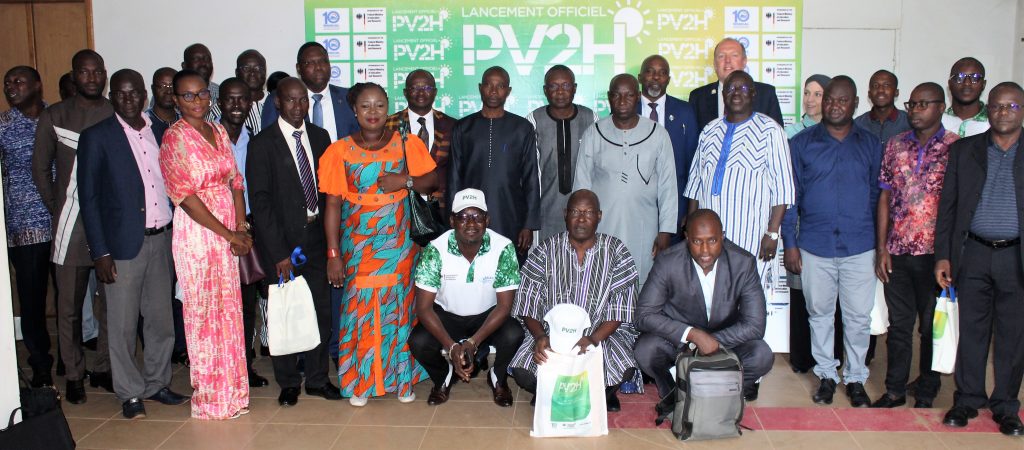
WASCAL, in partnership with the German Federal Ministry of Education and Research, (BMBF), has officially launched the Project “Optimizing Solar PV for Green Hydrogen Production in West Africa (PV2H)”, coupled with the BIO2H and bioenergy feasibility studies in Burkina Faso, as part of strategies to contribute to the promotion of the development of green hydrogen for an effective fight against climate change.
Dr. Yacouba Savadogo, Technical Advisor, speaking on behalf of the Minister of Environment, Energy, Water and Sanitation appreciated the active collaboration between WASCAL and the sub-region and expressed support for the PV2H project.
‘’I would like to thank WASCAL, our proud organization, for its extensive expertise and effective action in all areas relating to the issue of Climate Change in the West African region. I can assure you of the unwavering support of my department to make this project a resounding success’’. He spoke
Delivering his welcome address at the launch, Dr. Moumini Savadogo, the Executive Director of WASCAL, stressed on the need to densify the development of Green Hydrogen for effective fight against Climate Change.
‘’A shift to more environmentally friendly sources of energy is more than necessary. Promoting renewable energy is a global emergency and WASCAL has made it a flagship issue in its fight against climate change’’. He said.
For Dr. Christoph Rövekamp, Head of the Division, Energy and Hydrogen Technologies at the German Federal Ministry of Education and Research (BMBF), the launch of these 3 energy projects, is opening a new chapter in scientific cooperation among countries with a view to jointly solving concrete and practical problems with research, innovation and education.
‘’The development of Green Hydrogen calls for strong cooperation among partners from science, business and policy. With our research, we pave the way for a clean, safe and affordable energy supply, a better environment, more quality of life, new income opportunities and new jobs. He Spoke.
WSACAL’s Renewable Energy Coordinator, Dr Bruno Korgo said “the current climate context requires the whole humanity to switch to alternative energy sources such as hydrogen. “Hydrogen can be utilized in transport, industry, and agriculture. Massive use of hydrogen is an effective way to fight Climate Change and improve livelihoods’’. He concluded.
Funded by the German Federal Ministry of Education and Research to the tune of almost 3 million Euros, the PV2H project aims at providing a concrete technical response to the negative impact of dust on solar PV power plants and to propose ways to optimize the production of green hydrogen from solar PV systems under the specific climatic conditions of the Sahelian region in West Africa.
The event, which took place in Ouagadougou, was attended by ministers of the Burkina Faso government, members of the diplomatic corps, climate change and green hydrogen experts, researchers, and students.
In Africa, people’s access to energy is a real challenge that slows down the economic and social development of countries. This situation is particularly true in West Africa where more than 200 million people representing about 60% of the population do not have access to modern energy services. Most countries have low electrification rates, with less than 10% access in rural areas and large disparities between rural and urban areas.
The 24-month project is led by WASCAL and Forschungszentrum Jülich, with other partners, including, University Joseph KI-ZERBO, University Abdou Moumouni, SONABEL, Ministry of Environment, Energy, Water and Sanitation Burkina Faso, Ministry of Higher Education, Research, and Innovation of Burkina Faso.


